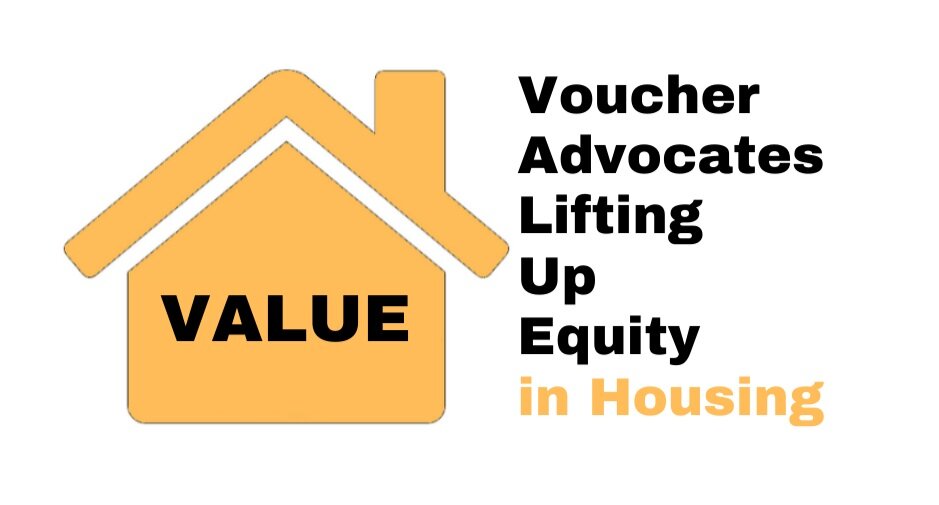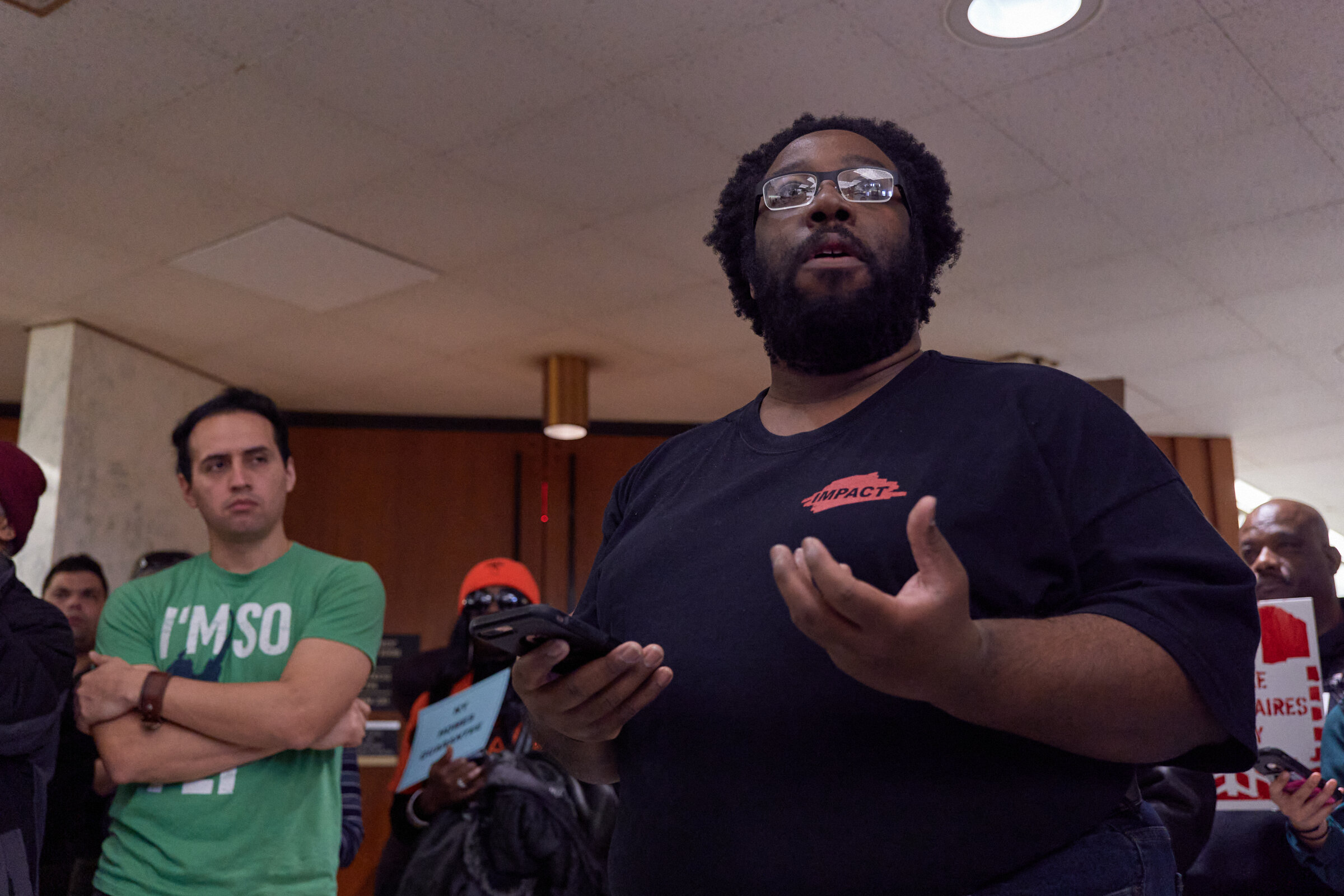Get Involved
Together, we can put an end to Source of Income Discrimination.
Add your voice to the thousands of New Yorkers calling on our elected officials to strengthen voucher programs, and add more resources in the efforts to enforce the source of income law.
VALUE In Housing Campaign
Our campaign believes everyone deserves access to housing, regardless of their form of income. We empower voucher holders to exercise their rights, as we build a voucher system that is competitive, transparent, dignified and respected by landlords and brokers.
Our Platform:
INCREASE THE SIZE OF THE SOURCE OF INCOME UNIT AT CCHR
In order for rental assistance vouchers to be an effective tool that helps move New Yorkers out of homelessness, the City must invest in more robust enforcement against source of income discrimination. The Source of Income Unit at the City Commission on Human Rights (CCHR) is the only city agency tasked with enforcing the source of income law for individual voucher holders, yet their work is undermined by a critical lack of resources. To date, the unit is comprised of 5 staff total, and only 2 attorneys, and since January of 2018, they have received 830 inquiries involving source of income discrimination. With the resources available, the unit managed to assist over 120 New Yorkers secure housing with their vouchers, and closed 58 discrimination cases. A larger unit will increase oversight in the housing market, and give people the ability to use their vouchers for housing instead of languishing in shelters due to pervasive source of income discrimination.
INCREASE CITYFHEPS TO FAIR MARKET RENT (INT. 146)
City vouchers must match fair market rent levels. At its current rate, CityFHEPS vouchers are not competitive in the New York City housing market, leaving recipients to contend with one another for units in an extremely limited, often deteriorating, pool of housing, and relegating them to a few far flung neighborhoods, reinforcing economic and often racial segregation. Increases in voucher amounts should also be tied to fair market rent or studies of median apartment rent, not the annual Rent Guidelines Board (RGB) vote. Most families exiting the shelter system are not able to secure rent-stabilized apartments and end up in non-regulated housing. Furthermore, this metric pits the interests of rent-stabilized tenants who have faced decades of steep increases and are now fighting for rent freezes against the interests of homeless families and individuals trying to move from shelter to stability.
INCREASE THE VISIBILITY AND AWARENESS OF KNOW YOUR RIGHTS INFORMATION FOR VOUCHER HOLDERS (INT. 1339)
*We won! Int. 1339 was passed into law on November 8th, 2020. Learn more here.
Upon approval, voucher recipients receive no tangible support or assistance to secure permanent housing. HRA and DHS shelter staff continue to distribute outdated real estate lists with inaccurate contact information, and expect their clients to navigate the housing market alone despite pervasive source of income discrimination, leaving voucher recipients vulnerable to manipulation by landlords and brokers. Immediately after their acceptance into a rental assistance program, voucher recipients must receive critical know your rights information about the source of income law, including methods to identify and report source of income discrimination, and the appropriate contact information for both the source of income unit at CCHR and DSS.
PROTECT VOUCHER HOLDERS FROM RESTRICTIVE CREDIT REQUIREMENTS
While rental assistance programs help low income New Yorkers access the private housing market, credit scores are weaponized by landlords and brokers to disqualify housing applicants using rental subsidies. Credit is a deeply inequitable calculation that lacks any real validity to determine an applicant’s ability to pay rent on time. HPD now offers applicants on NYC Housing Connect the option to provide rent payment history instead of a credit check, and people using rental assistance subsidies need to be offered the same protections.
IMPROVE ELIGIBILITY REQUIREMENTS FOR VOUCHER PROGRAMS
The current CityFHEPS program allows families and individuals to maintain benefits for five years unless able to prove “good cause”, and within those five years, recipients cannot earn over 250% of the Federal Poverty Level. With no opportunity to increase wages and build financial stability, families and individuals face an arduous financial cliff at the end of five years. If CityFHEPS and FHEPS intend to lift people out of poverty, they need to stop penalizing recipients for accepting advancements in their careers, and offer an opportunity to achieve financial self-sufficiency.



